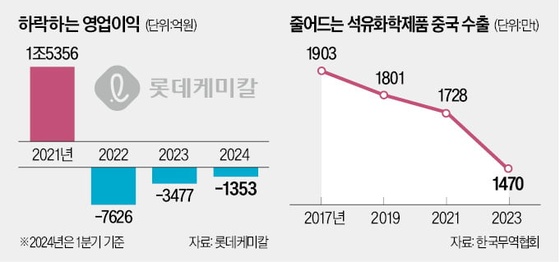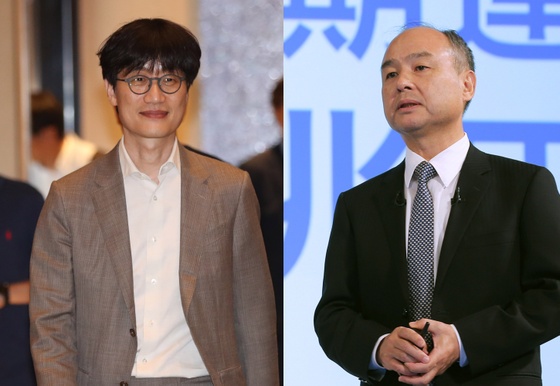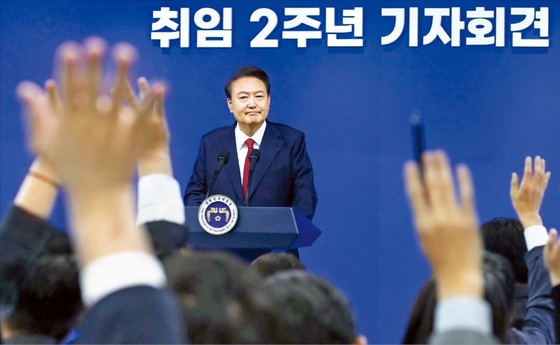[취업에 강한 신문 한경 JOB] "글로벌CEO 되려면 해외 경력 필수"
스티브 스타인 아태지역 대표
평생직장의 시대 끝나
언제든 홀로 설 수 있는 스페셜리스트 돼야
헤드헌팅 컨설턴트 되려면 기업에서 먼저 경험 쌓아야
언론사 기자들 헤드헌터로 전직하면 잘할 것
![[취업에 강한 신문 한경 JOB] "글로벌CEO 되려면 해외 경력 필수"](https://img.hankyung.com/photo/201606/AA.11868923.1.jpg)
최근 한국을 찾은 글로벌 헤드헌팅 업체 DHR인터내셔널의 스티브 스타인 아시아태평양지역 대표(사진)는 한국경제신문과의 인터뷰에서 이같이 말했다. 그는 “다양한 문화적 배경을 수용하면서 이들과 함께 성과를 창출하는 것이 글로벌 기업 CEO의 진정한 능력이라고 생각한다”며 “실질적인 해외 경험은 필수”라고 강조했다. 특정 지역을 초월해 다양한 지역에서 일했거나 성공한 빅마켓의 경험과 피플스킬(리더십+커뮤니케이션) 등 ‘글로벌 시민’의 경험이 중요하다는 것이다.
DHR인터내셔널은 2012년 한국에 진출했다. 자동차, 유통, 하이테크 등 임원급 헤드헌팅 전문업체로 서울 을지로 미래에셋센터원에 사무실이 있다.
지난해 말 국내 기업의 구조조정으로 시니어급이 회사를 떠났다고 하자 스타인 대표는 “한국에서만이 아니라 세계적으로 흔히 일어나는 일”이라고 전했다. 40~50대 임원이 직장을 잃거나 자문역 등 ‘뒷방’으로 밀려나고 있다고 했다. 그는 “평생직장 시대는 끝났다”며 “위기의 시대에는 언제든 홀로 설 수 있는 스페셜리스트가 돼야 한다”고 말했다.
그에게 최근 CEO급 시장에서 각광받는 리더는 어떤 사람인가 물었다. 스타인 대표는 “요즘같이 세계적으로 기술이 급변할 때 기업들은 다음 단계로 성장시킬 수 있는 미래지향적이고 포괄적 안목을 지닌 리더를 선호한다”고 답했다. 그는 최근 기술 발달로 빅데이터, e커머스, 사물인터넷(IoT), 전기차, 자율주행차 등 신기술 분야의 인재 수요가 많다고 전했다.
헤드헌팅 시장도 전문화되는 추세다. 스타인 대표는 “헤드헌팅 업체의 컨설턴트가 되려는 20대 젊은이가 있다면 기업에서 먼저 경험을 쌓을 것”을 권했다. 기업에서 일하면서 업무에 대한 시각과 전문성을 키워야 산업 전체를 조망할 수 있는 눈이 생긴다는 것이다. 월스트리트저널 아시아판의 홍콩 특파원 출신인 스타인 대표는 “언론사 기자들이 헤드헌팅 업체로 전직하지 않는 게 놀라울 정도”라며 “앞으로 많은 기자가 헤드헌터로 전직할 것”을 권했다.
공태윤 기자 trues@hankyung.com
---------------------------------------------------------------------------
1. Welcome to Korea. Being a Chairman of DHR APAC, where are you based? How often do you visit Korea? What is the purpose of this visit and how long will you stay in Korea?
Based in Singapore. Unfortunately, only get to Korea 1-2 times a year, but would like to come more. Purpose of last visit was primarily to meet with our Korea team, explore client opportunities, and discuss our strategy for 2016.
2. Could you share with me about how much DHR Korea office has grown since the office opening in late 2012? The economy is reviving in Japan, and many multinational companies are coming to Shanghai even though China’s economy remains relatively stagnant, which could be threatened to Korea economy.
Under the leadership of our Korea country Managing Director, Philippe Tirault, we have steadily built up our presence in Korea and now have four outstanding consultants with expertise in the Industrial, Consumer/Luxury, Technology and Healthcare sectors. We have, in my honest opinion, one of the best all-around retained executive search teams in the market and I’m very proud of the work that we do in Korea.
3. It seems that companies in the areas of Big-Data, IT and E-Commerce are hiring many people these days. Could you share with me about current trends of IT industry, and what type of key talents these leading IT companies want to hire?
Technology has never been more important as an area of strategic investment for companies. Traditional “bricks & mortar” companies are looking for ways to extend their market reach by developing e-commerce and digital capabilities. Analytics are increasingly understood as a strategic asset and companies are actively looking for ways to understand the data they collect on their customers in order to more effectively target their products and services. At the same time, the barriers to entry are lower than they’ve ever been. Young, technology-driven companies like Uber, Airbnb and others are entering markets and now posing some serious and fascinating challenges to traditional businesses. This can feel very threatening at first, but it is good news for consumers who deserve to have access to the best possible products and services at the lowest possible prices.
4. Uncertainty of global economy has been increased. Therefore, it is likely that companies will be more demanding than before when they recruit people from outside. What other things are additionally required from DHR's clients?
I’ve never known a client that wasn’t demanding, and we have no complaint with that. When a company hires a high-end executive search firm like ours and says they are very serious about employing and developing people best suited to take their business forward. Some companies put a premium on people and leadership. Others are more cavalier in hiring and simply want to fill slots in the business and hope to get by. Global economic uncertainty is the best reason ever to work with retained search firms like ours. You can’t afford to make a hiring mistake at the executive level and we are trained to identify and recruit the very best people for our clients.
5. I’m sure that there is no perfect person. However, what type of leaders do companies want the most? (Leadership, insight, expertise…)
This is a very difficult question to answer. There are as many kinds of leaders in the market as there are unique business circumstances. We match executives to a company’s unique set of current and anticipated circumstances. Some are in growth mode, others going through retrenchment, and still others, are changing through M&A. For each set of circumstances there are executives unique suited to see a company through to the next level.
6. What capabilities will be needed for the Korean CEOs to become a global company's CEO?
Nothing is better for Korean executives (or any executive for that matter) than international experiences. Whether you are Korean, or Singaporean, or Chinese or American, it’s a very different thing to lead a company with a purely domestic agenda, vs. a regional or global agenda. The ability to work with people of many different backgrounds and to adapt to circumstances in multiple markets is a real skill and this isn’t something that can be taught. Actual operating experience overseas is essential.
7. There are too many search firms in Korea. What is the right direction for search firms to pursue if some of them are to be removed?
There are two key things that any search firm needs to succeed. The first is “trust.” This is essential. We work very closely with CEOs who can’t afford to make mistakes. There has to be trust in order to ensure a successful search for new talent. Second is expertise. Increasingly, search firms are building out specialization in order to differentiate themselves and to bring tangible market insights to clients who are trying to make the best possible decisions. We’ve invested heavily in the Life Sciences space, for instance. We work among the very top clients in the pharmaceutical and medical device areas and these areas require specialist knowledge. We have this in Korea, throughout the region and around the world. In Korea, we also have exceptionally strong positioning in the automotive, retail/luxury and technology areas.
8. This is a personal question. You were a journalist before. It is certain that you became a great leader now because you have been deeply interested in knowing people and Human Capitals. I’m also interested in the same topics. What competencies should I have to have in order to become someone like you?
Great question. I’d say that the one thing that journalism taught me was ‘the art of the interview.’ It’s a great skill to be able to hone in on the real questions. As a journalist you need to gather the facts and insights in order to write a compelling article. In executive search, its essential that you get to the bottom of a candidate’s background and his or her motivations. Learning how to peel back the layers in order to find out what someone is really about and how much they really know, takes time and interviewing skill. I’m actually surprised there aren’t more former journalists who’ve joined the Executive Search industry.
9. So many Korean companies went through restructurings in a great deal end of last year. Therefore, many senior executives lost their jobs. Could you give us some advice for those who are looking for a new opportunity in their late 40s and mid-50s?
This isn’t just the case in Korea, its true globally. Many senior-level executives have either been laid off, or opted out of corporate in their 40s and 50s and many have opted to go into consulting or advisory roles. There are scores of opportunities for independent senior-level executives these days, compared to a decade ago. Private equity firms are hungry for executives who have the operating experience that they can bring to their fast-growth portfolio companies. Also, a lot of companies now outsource parts of their business to independent consultants and advisors. It’s important to know and to learn how to be an independent operator in this day and age. Nothing is certain or guaranteed in the corporate world these days and the era of “a job for life” is coming to an end. It may be slower to occur in Korea than elsewhere, but it is changing.
10. Tips for young Korean people who are interested in working for search firms.
Develop an area of functional or industry expertise and continue to hone interviewing skills wherever possible.
-
기사 스크랩
-
공유
-
프린트


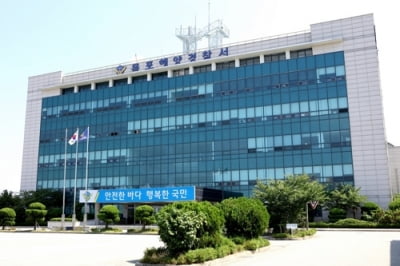

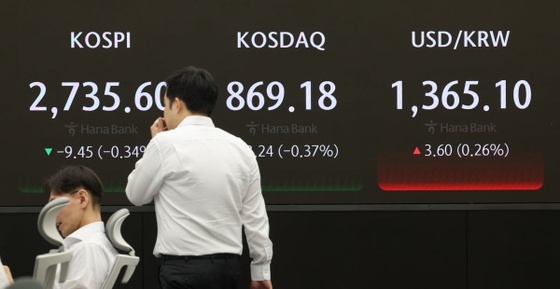
![화웨이에 반도체 수출금지 '직격탄'...인텔 2.2% 급락 [출근전 꼭 글로벌브리핑]](https://timg.hankyung.com/t/560x0/photo/202405/B20240509064730400.jpg)


